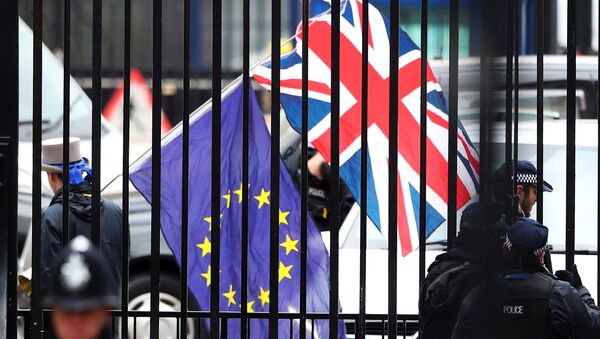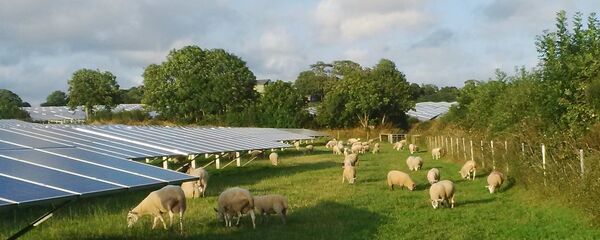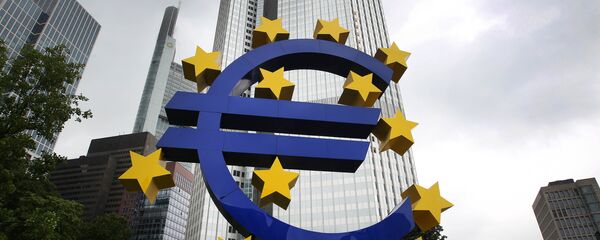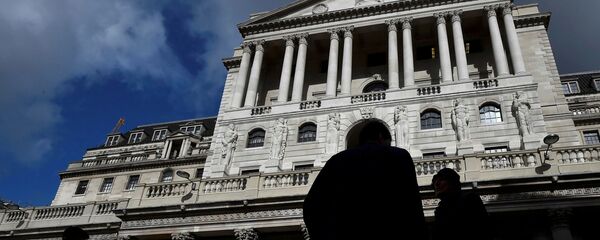Kristian Rouz – British farmers might be facing elevated risks of disruption in the established trade routes, cheaper imports, and higher input costs, as well as changes in bank lending standards after Brexit, a new report suggests.
UK’s lawmakers called on the Conservative and Unionist Cabinet of Prime Minister Theresa May to address the nascent risks while the Albion is still technically part of the EU.
READ MORE: 'Everything That Is Currently EU Law Will Become UK Law' – Professor of Politics
The report, released by a committee comprising members of several political parties, also warns of a possible decline in farmer incomes and welfare standards, and an expected damage to the national agriculture industry.
“Brexit will inevitably introduce friction to trading routes,” the House of Commons’ Environment, Food and Rural Affairs Committee said in the report.
"Defra (Department for Environment, Food and Rural Affairs of the UK’s Government) should consider providing a fund to support our food producing industry to adapt effectively to the challenge ahead," the report says.
PM Theresa May and her Tory Cabinet has not yet reached unity on a single Brexit plan, and the time is running short as the UK-EU negotiations have faltered for roughly a year. Cabinet members haven’t achieved a single opinion on the future relationship between the UK and EU, let alone Britain’s future trade relations with non-EU countries.
The UK is expected to leave the EU in March 2019.
The parliamentary committee also warned higher customs tariffs could increase costs of consumer goods in the domestic market, spurring inflation, and triggering aggressive interest rate hikes from the Bank of England (BoE). This would raise credit costs for the UK’s farmers as well, putting some of them out of business.
"In the event that the UK leaves the EU without a free-trade agreement, UK-EU trade will proceed under WTO rules. Reverting to WTO tariffs will have a significant impact upon agriculture as tariffs are higher for agricultural products than for other goods and services," the report reads.
Currently, the EU is the largest market for the British agricultural trade, accounting for some 60 percent of the UK’s exports, and 70 percent of its agricultural imports. The report says the British food and farming sector is currently making some £110 bln annually, and employs one in eight British workers.
On the other hand, as both the UK’s agricultural exports and imports are expected to drop in such a scenario, the Albion might become increasingly self-reliant, with farmers readjusting towards serving the UK’s domestic market in the first place.
READ MORE: EU Reportedly Plans to Cover Fee for Europeans Set to Stay in UK After Brexit
The MPs also said the Cabinet must lay out a plan of how the national infrastructure and IT systems could help farmers weather the Brexit-related changes in foreign trade patterns.
Additionally, the report said the British agriculture should raise its quality standards in order to ensure a higher international competitiveness of its products after Brexit. This rather than lowering quality standards and lowing prices in order to ensure a better global competitiveness.
“Brexit should be an opportunity to improve, not undermine, our global reputation for quality,” the report says.
The MPs also noted some 95 percent of the UK’s sheep products export volume goes to the EU. The loss of continental market could produce a massive drop in domestic prices on sheep meat, particularly so if the EU slaps tariffs against the British lamb.
READ MORE: Fed Up After Brexit: Poll Shows Majority of Brits Second-Guessing Split With EU
Experts echoed the report’s sentiment, emphasising the threat of rising food prices in the domestic market due to the projected contraction in imports, albeit a simultaneous contraction in exports could level out the prices.
"If the UK leaves the EU with no trade agreement, the average WTO tariff of 22% that would be applied to imports, would increase prices for consumers. This would be an unappetizing hit to their weekly food bills,” Helen Dickinson, of the British Retail Consortium said. "Given that over two-thirds of our food that is imported comes from the EU to supplement UK production, the scale of this potential impact is clear."
However, the government – whilst acknowledging the looming risks – is more optimistic of the likely Brexit effects to the UK’s farming and its own policy response.
"Leaving the EU gives us a golden opportunity to secure ambitious free trade deals while supporting our farmers and producers to grow and sell more great British food,” Defra said in a statement. "Any future deal must work for UK farmers, businesses and consumers, and we will not compromise on our high environmental or welfare standards."
The Government also reassures it won’t take unilateral steps that would damage the national food industry, regardless of the changed in the UK’s international trade after March 2019.




